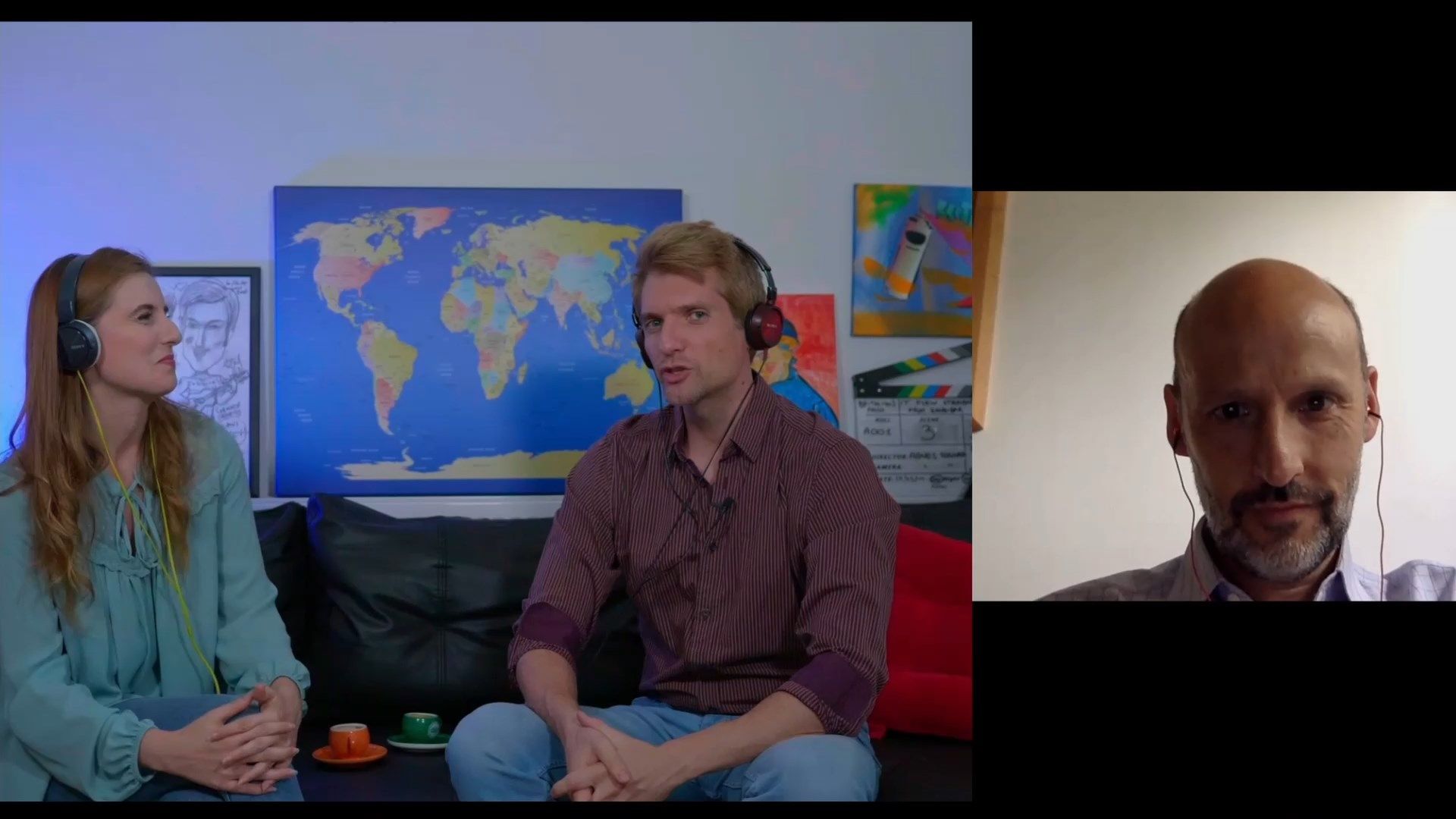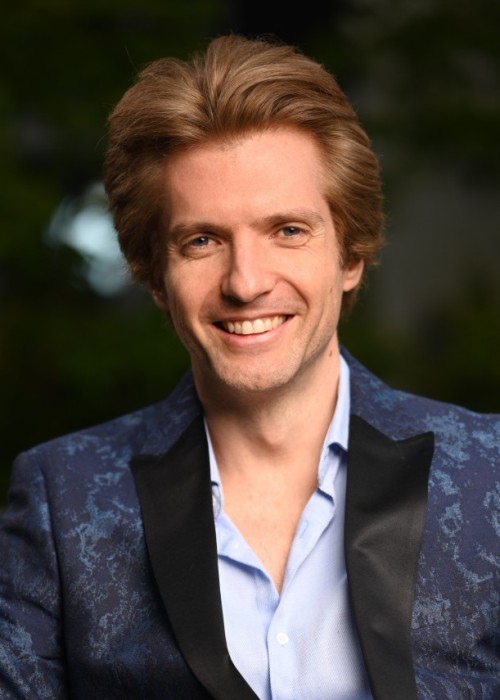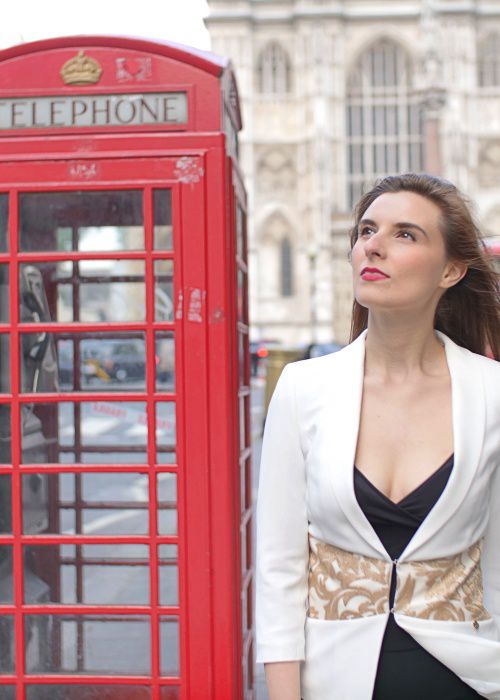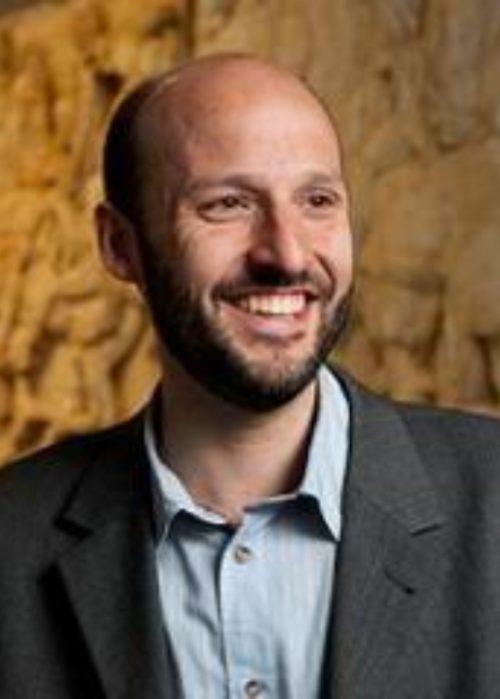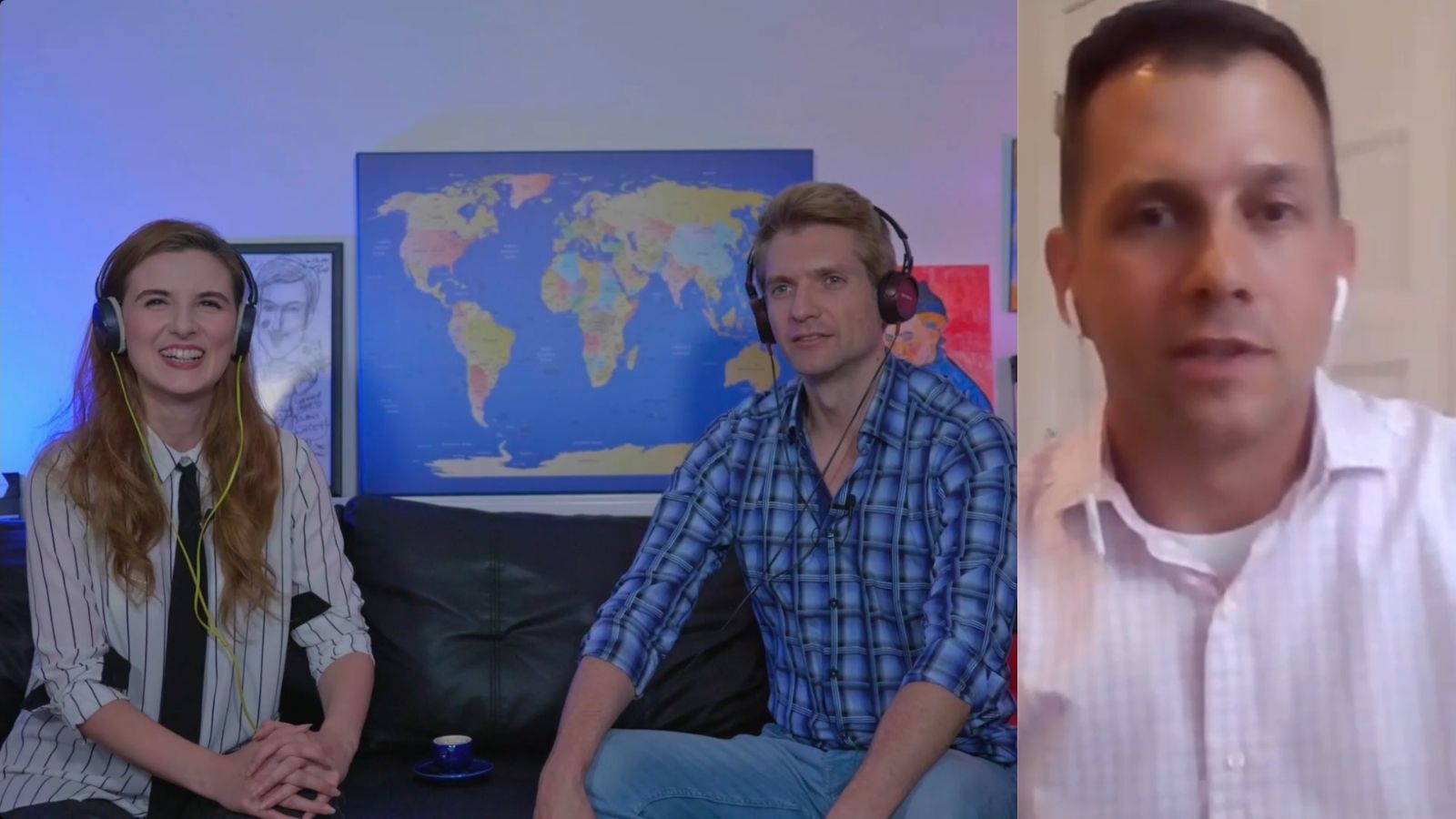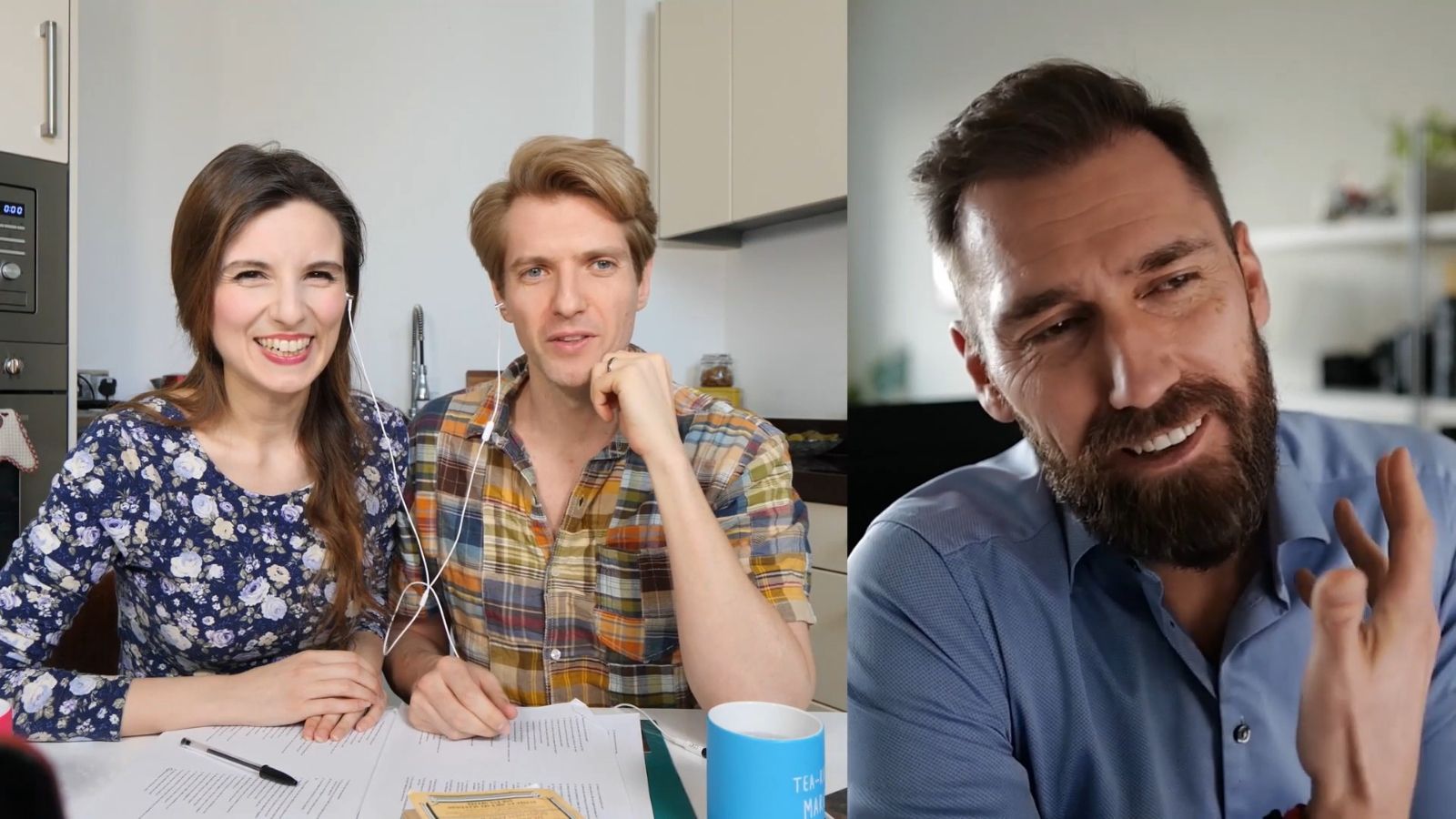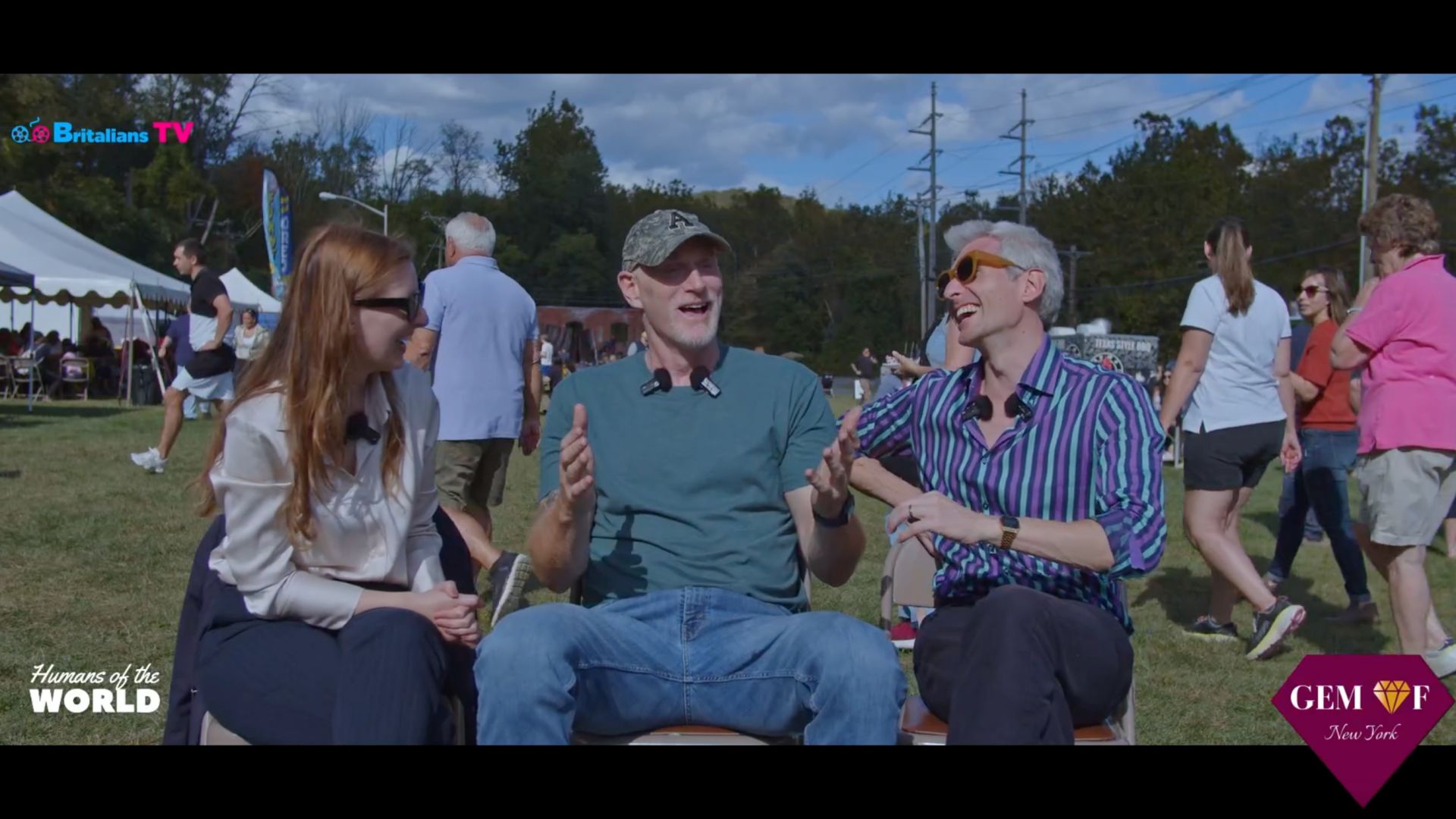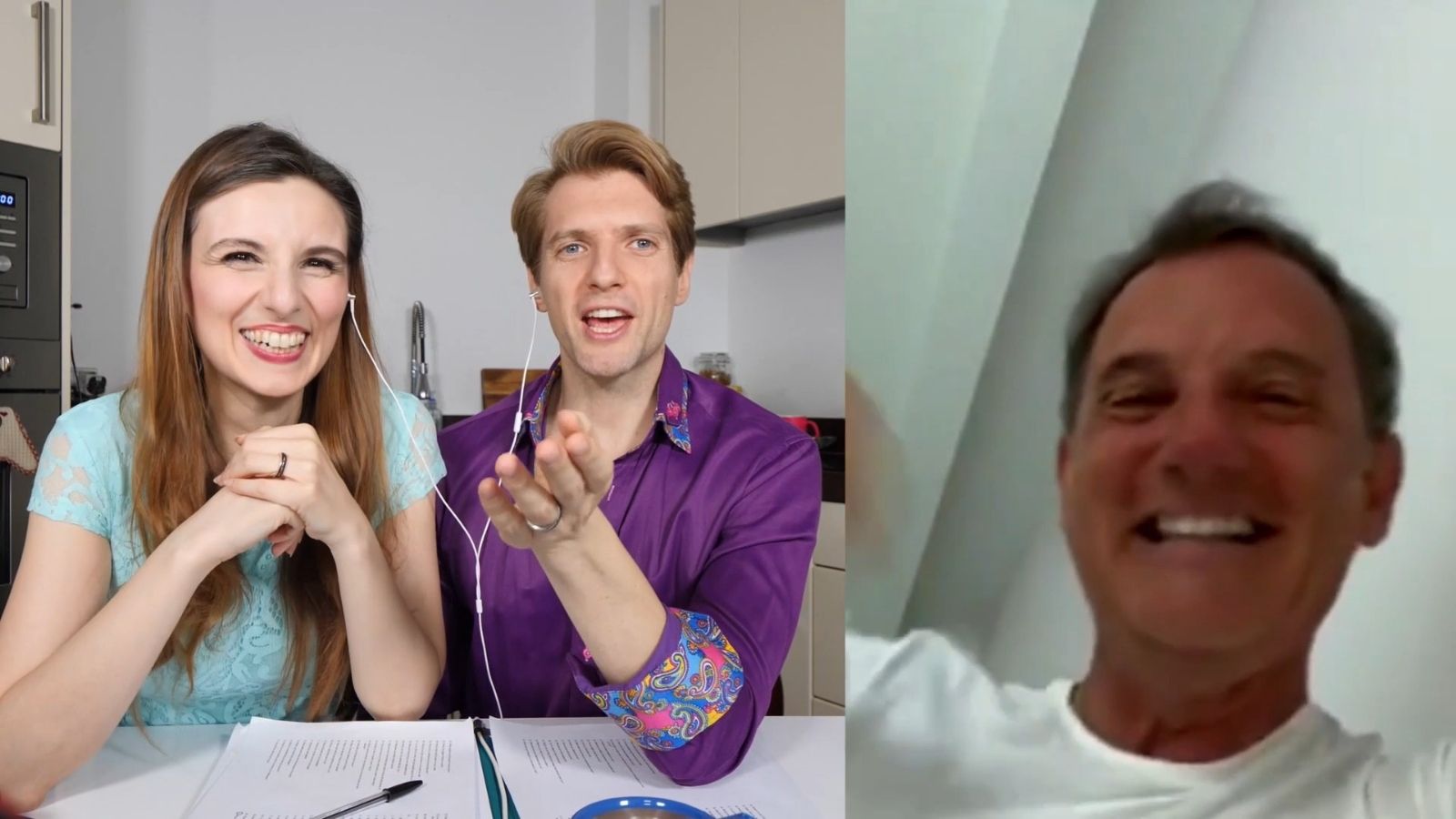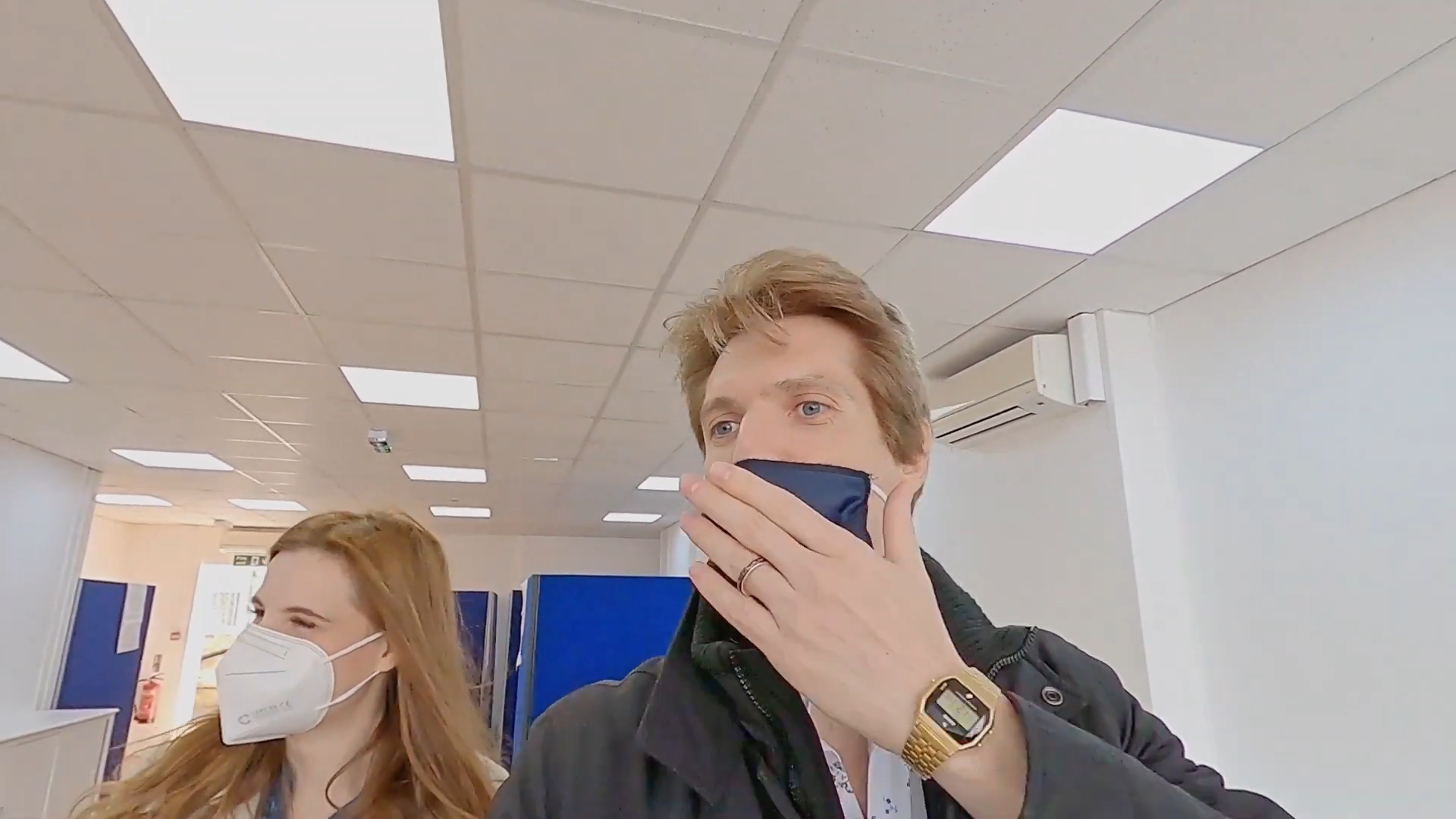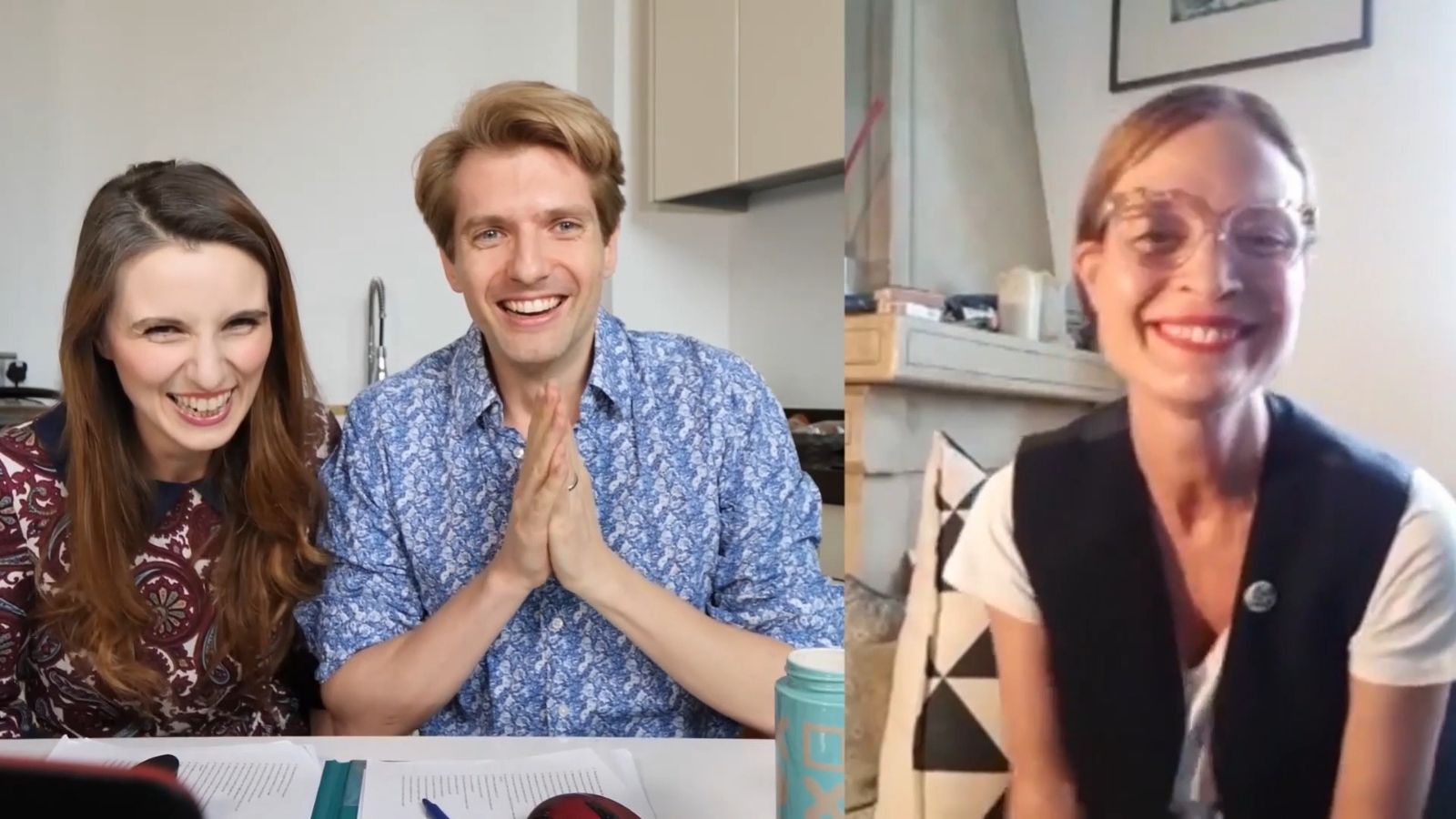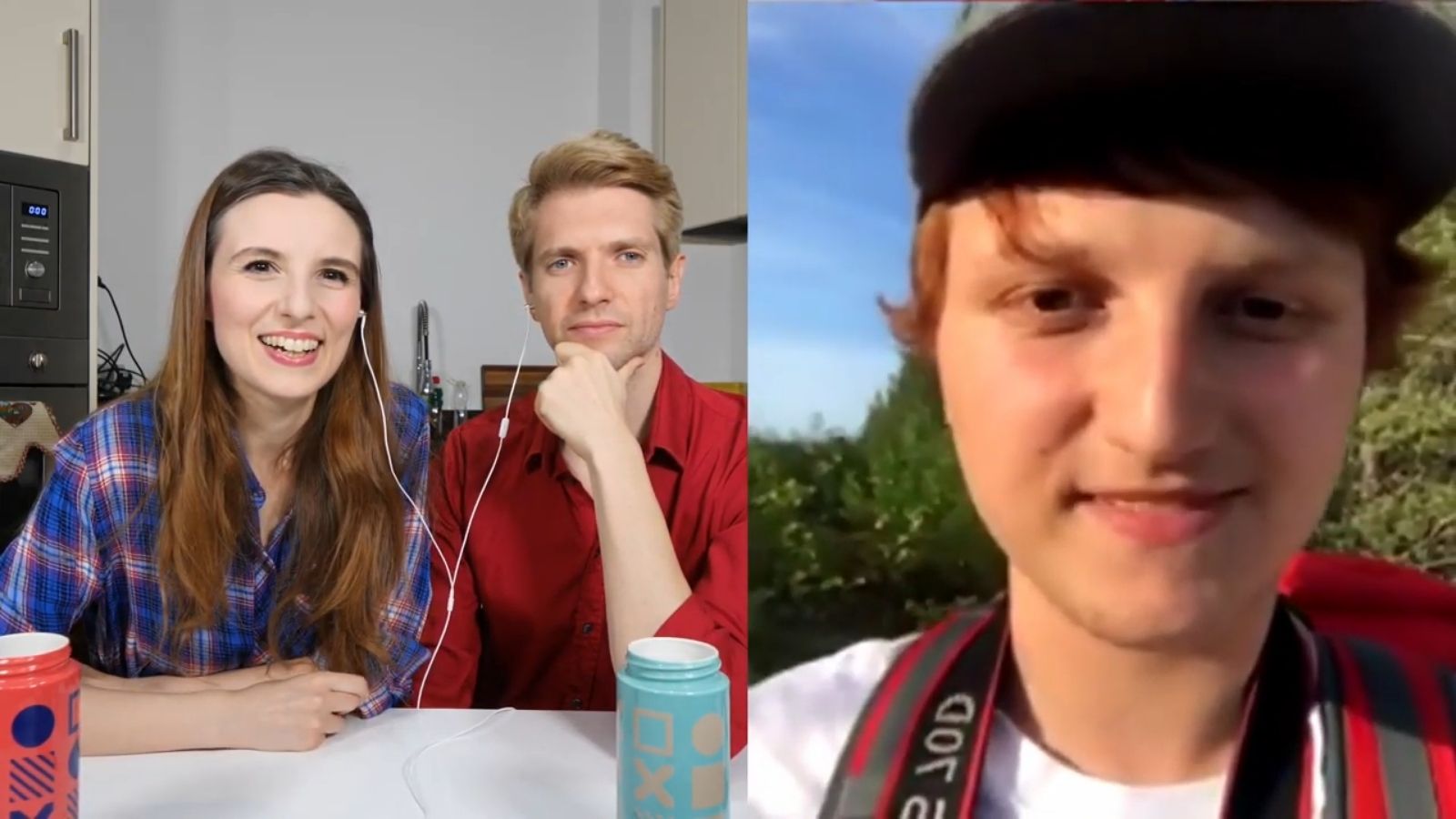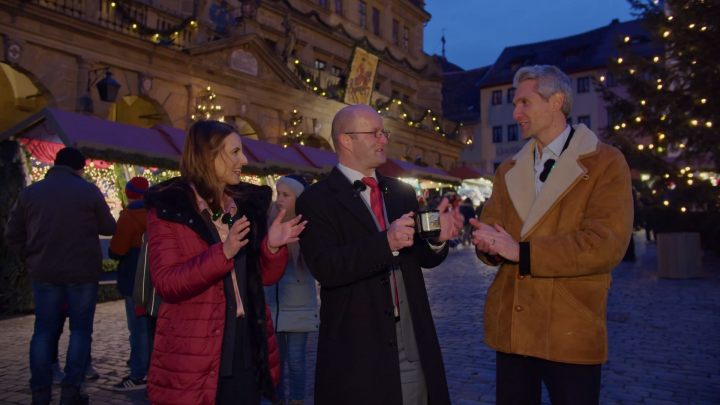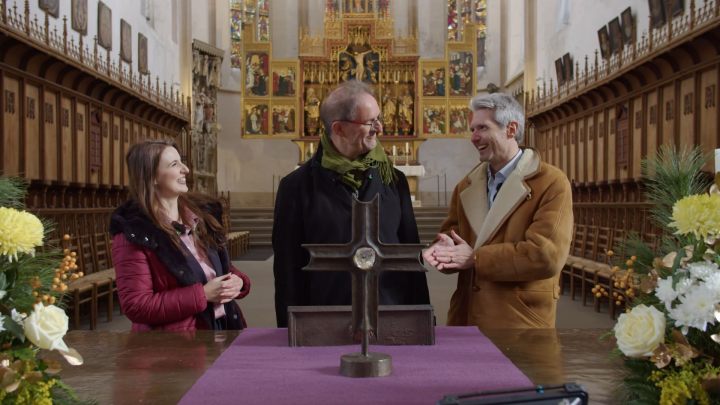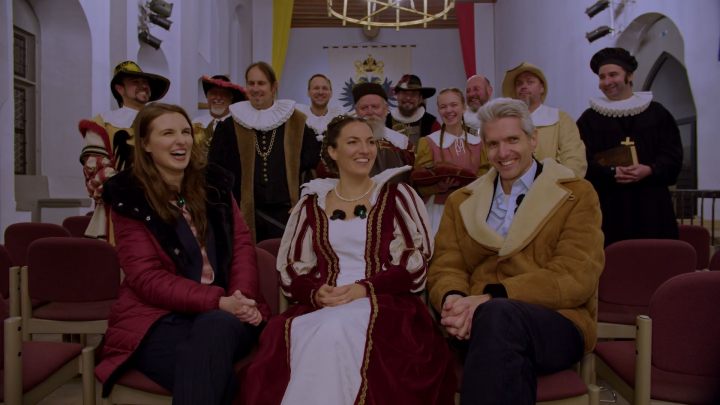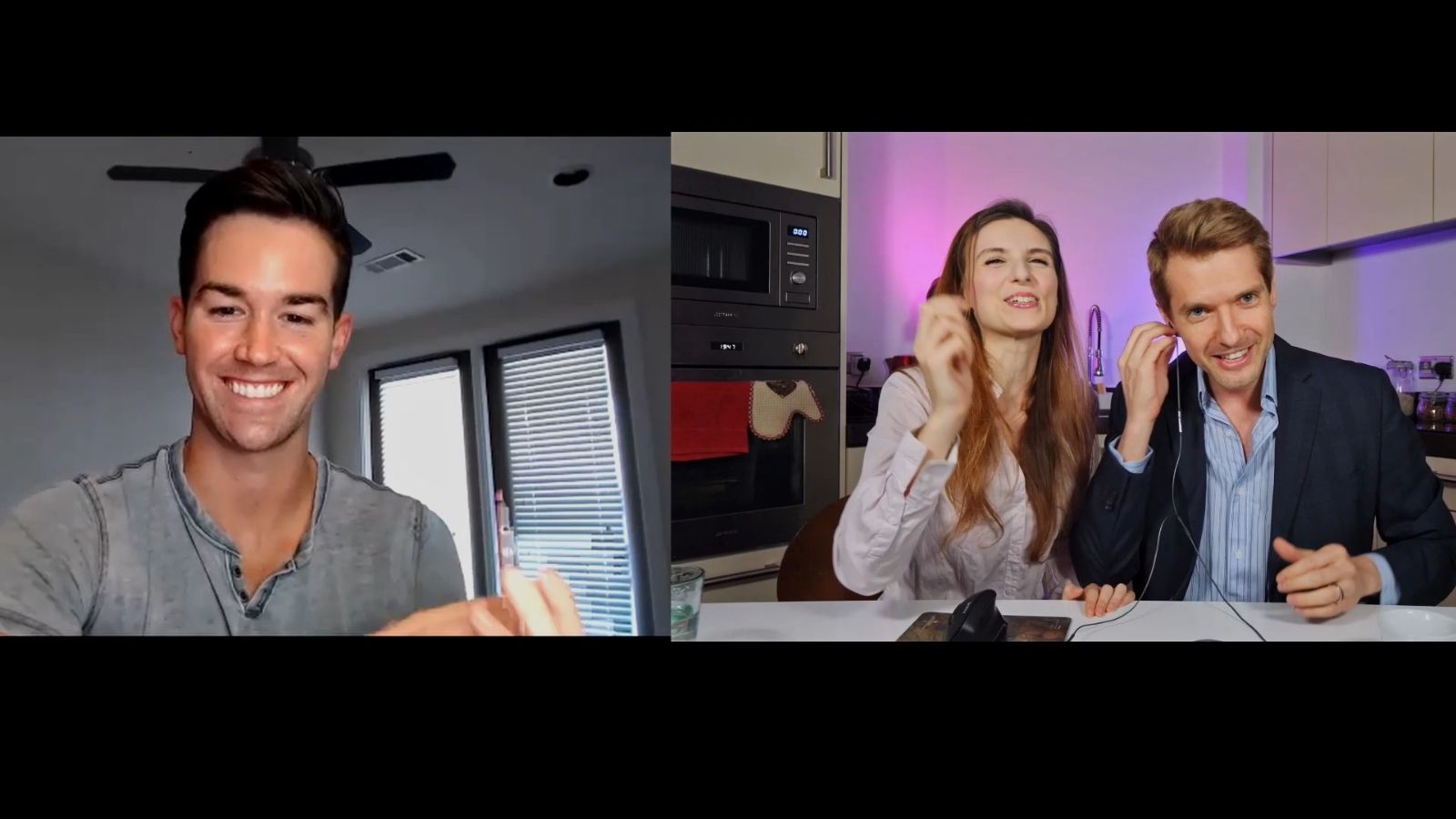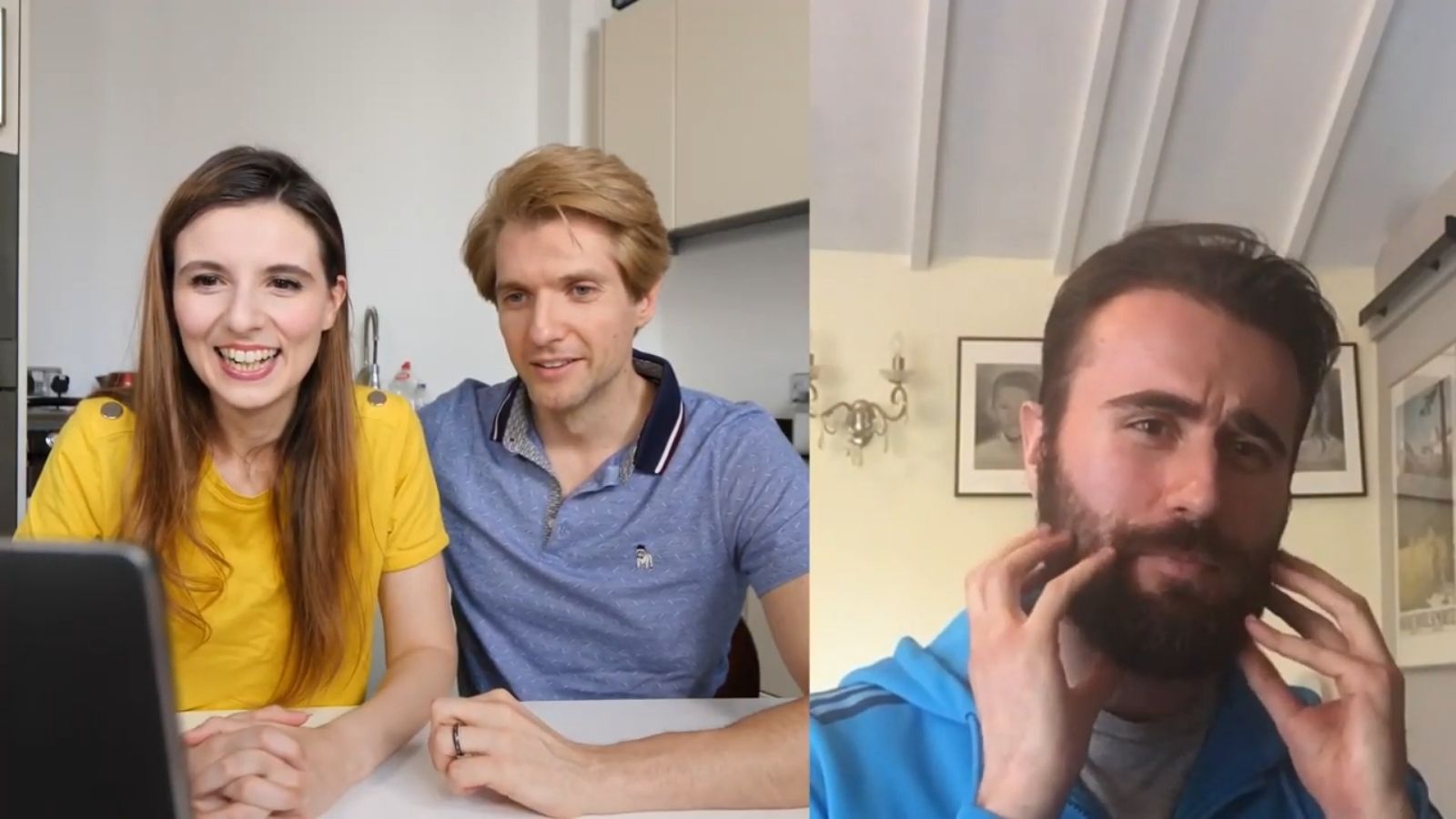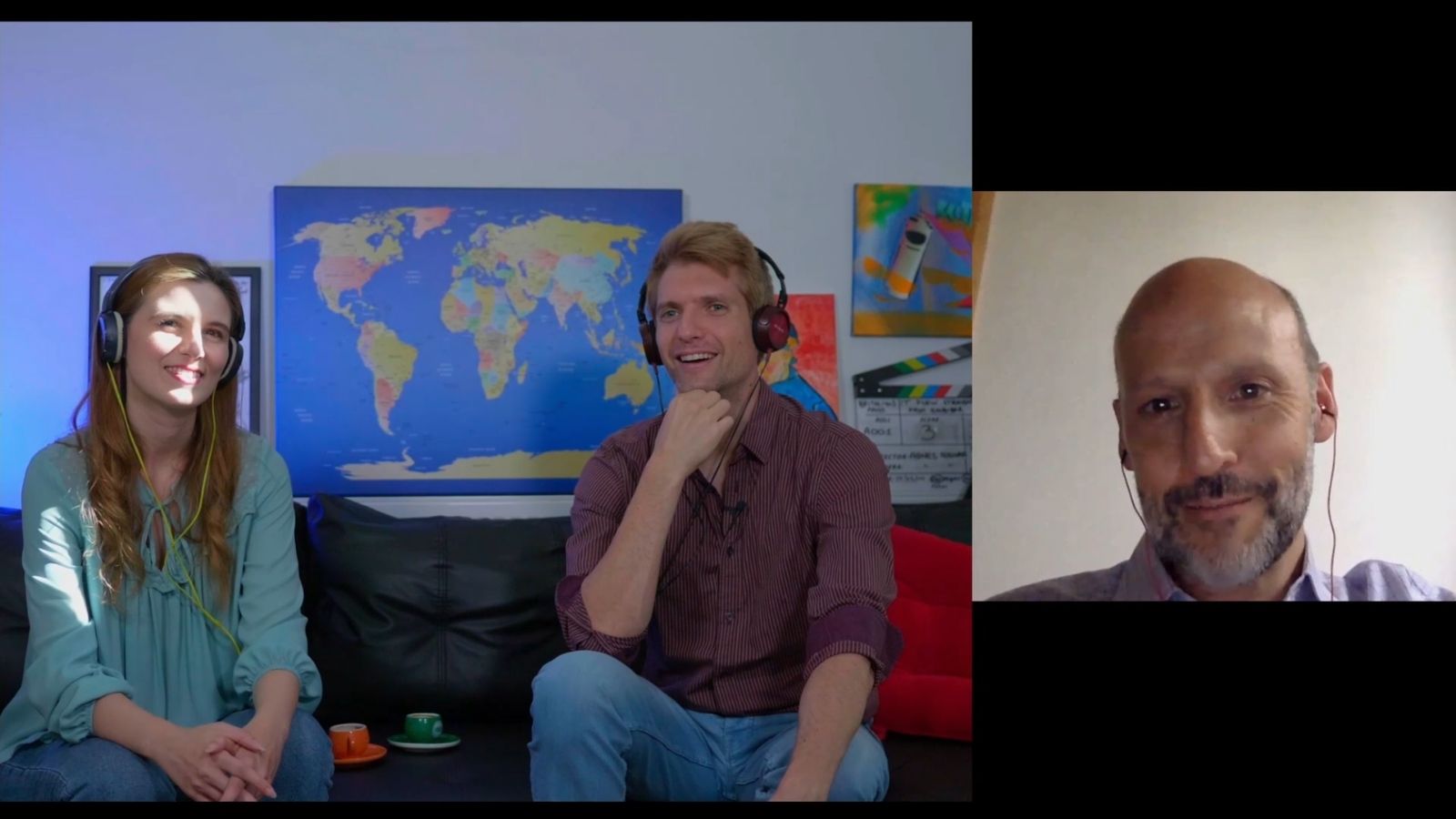
Wed, 8 December 2021 - By Marco Biagioli and Erica Melargo
Ever thought if you have free will or not? In this fresh new episode of Marco and Erica #TALKSHOW, Marco and Erica meet with Peter Adamson, Professor of Ancient and Medieval Philosophy and Creator of the podcast History of Philosophy Without Any Gaps. How did he get into philosophy in the first place, why did he specialise in ancient philosophy, and did he actually manage to cover the entire history of philosophy in his podcast?
Peter Adamson is an American professor who lives in Munich, Germany and visits London every few months where he also teaches at King’s College. His primary areas of interest are late ancient philosophy and Arabic philosophy. You can say that we will not only travel around the world with him in this episode, but also travel through time!
Moving Around the World to Study and Teach Philosophy
Peter was born in Boston, United States and grew up there. He later moved to Indiana to get his PhD in Medieval Philosophy at the University of Notre Dame. Petter admitted that he was afraid to move from Boston to Indiana, but he liked it after he moved.
After he got his PhD, he moved to London and lived there for 12 years. During his stay in London, he taught in King’s College. In 2012, he moved once again to Munich for two reasons: his wife is from Bavaria and he got a professorship there. Although he is in Munich, he still does some work for King’s College.
The fact that he moved from a city to another and from a country to another made our presenting duo curious to know if this was something he planned for. Peter told them that it happened without planning. “One of the things of being an academic is that you have to be pretty open about where you will end up living, because it is kind of hard to get a job in philosophy” -Peter explained.
Peter recounted to Marco and Erica that his PhD research was about Arabic Medieval Philosophy from the Islamic world and he got it in 2000 before 9/11, so the interests in Islamic Philosophy grew. More details about this growth and how he was affected by it in the episode
From Studying Literature Into Studying and Teaching Philosophy
When Peter got his undergraduate degree, he planned to study literature. So he went to liberal arts college in Whimes College in Massachusetts. In liberal arts college, students study multiple topics. As Peter was taking literature classes, he had to take philosophy classes as well.
“I read Plato and I just thought oh this is amazing” Peter said “The more philosophy classes I took, the more I was convinced that I was more into that thing than literature”
For Medieval Philosophy, Peter was interested in going to an area of philosophy where there is still lots of work to be done. He thought to himself to stay away from Plato and Aristotle and work on a topic that there are not many people doing it. Peter said he gives his 20 years old self credits for having this idea, we all do!
Although he was forced to take philosophy classes at the beginning, Peter continued studying and teaching philosophy because he loved how, as a philosopher, he has to find an answer even if he will look for it for 40 years.
Marco and Erica had a deep conversation about free will and one of Aristotle’s arguments with Professor Adamson. When you want to drink a cup of coffee, is this considered a free will? Find the answer in the episode
“If I was born and get to live 100 times, I would be a philosopher”
Marco and Erica asked our guest if he ever thought about changing his profession or if the reason he pursued it changed with time. Peter’s answer expressed how much he loves philosophy. “If I was born and get to live 100 times, I would be a philosopher, I mean one of those times I would do something exciting, but the other 99 I would be a philosopher” -Peter expressing how much he loves philosophy.
Professor Adamson added that he would specialize in different areas of philosophy every time. Regarding his relation with philosophy, he admits that it has changed through time for sure. Especially because he has a podcast that made him look into different kinds of philosophy. “It made me lookup to more different kinds of philosophy than I actually work on in my teaching and research” Peter on how the podcast changed him.
A Podcast’s Scoops of information is Bigger than a Philosophy Class’s Scoops
In speaking of the podcast, Erica asked Professor Adamson if his podcast fills the gaps he had before, as the podcast name suggests. Professor Adamson said that the History of Philosophy Without Any Gaps podcast definitely fills the gaps.
The main idea behind this podcast is to cover the whole history of European philosophy without skipping any point. Since university classes only focus on and teach famous philosophers, Peter had this idea to have this podcast to shed the light on everyone.
“One reason they do that is because they have limited time,” Peter commented on philosophy classes “Where I thought, with a podcast, I can go as slow as I want and I can cover everything that happens,” Peter added.
As Peter talked with our presenting duo, he recounted how this podcast allows him to look into new and different philosophy, texts and figures that he has never researched about. In addition, he recounted how the podcast does not focus only on European philosophy as he covered Indian and African philosophy with a number of his colleagues, and he is planning to cover Chinese and other cultures philosophy in the future.
Studying History of Philosophy VS Studying Philosophy
As Peter discussed some cultures’ philosophy with Marco and Erica, He brought arguments about the history of philosophy to the table. Some people ask him why he studies all the philosophers that he agrees and disagrees with instead of focusing on the ones he agrees with. Moreover, some modern philosophers see the history of philosophy is more of a history than it is a philosophy.
For Peter, he believes if one learns the entire history of philosophy, although it is impossible, they would learn all of the philosophy that has been exciting so far.
Peter then dived into another conversation about ancient cultures philosophy with Marco and Erica. Ancient cultures believed that philosophers are able to be in charge, does this can happen in our modern life as well? Watch the episode to know about ancient cultures’ point of view and which modern life’s aspects can philosophers take control of.
Multilingual Philosopher
After having a great time with Professor Adamson, our presenting duo wanted to know what he is planning to do next. Aside from staying in Munich, the excitement dose on his podcast will double as he will cover African and Chinese philosophy.
Fun fact in speaking of cultures, as Peter researched and read about many culture philosophies, he learnt some languages like ancient Greek, classical Arabic and Persian. In order to understand texts, he had to learn languages and that is why in some of his podcast’s episodes he had a co-author to help him understand as he does not have enough time to learn new languages.
The mentioned languages are not the only languages Peter knows! He can also read French, German, Italian and Latin. “If I would have a super power, it would be to be fluent in all languages” -said Peter.
As Peter oversees research projects in Natural Philosophy in the Islamic World, Erica asked him an interesting question: What is one thing about Arabic philosophy that makes it different from the others? Peter answered her question with an interesting fact: One of the famous Arabic philosophers is Avicenna and he made a great change in the philosophy history that studies divided philosophers into 2 groups, before Avicenna and after Avicenna.
This episode is filled with great, deep and interesting conversations. For example, professor Adamson illustrated different cultures’ philosophies about one point and how these differences reflect their beliefs and way of living. Bring a snack and coffee when you watch this episode!





